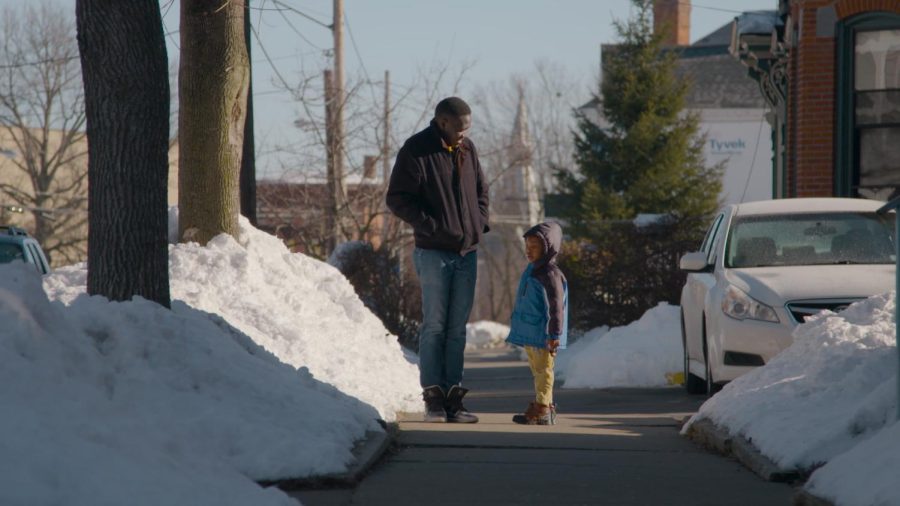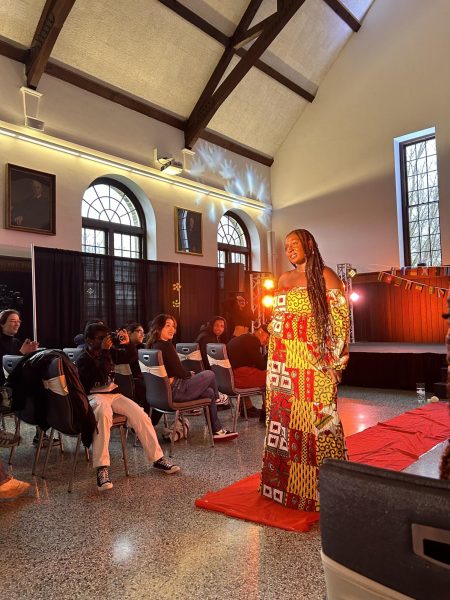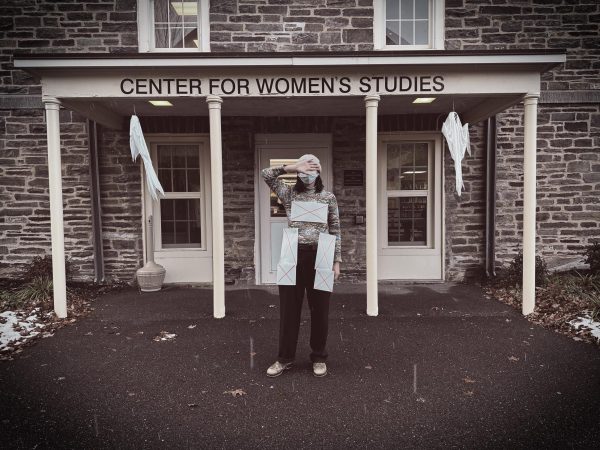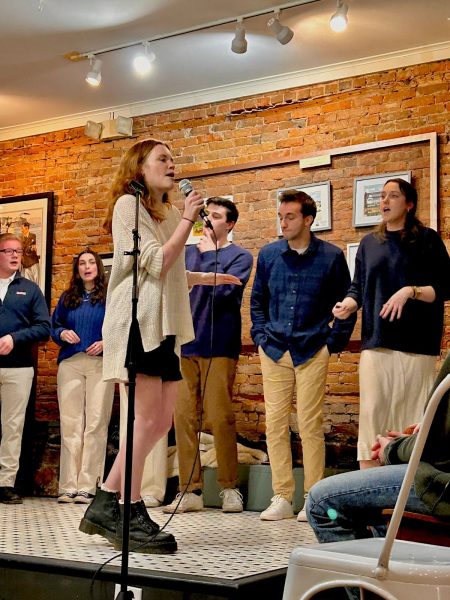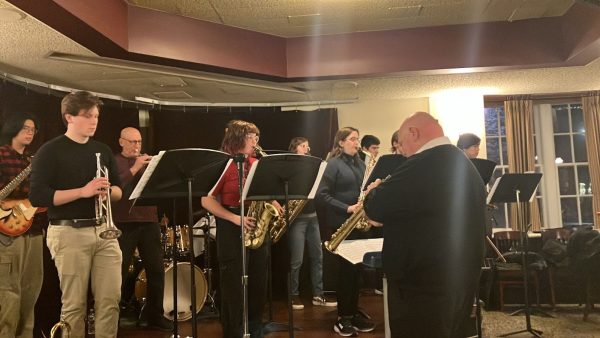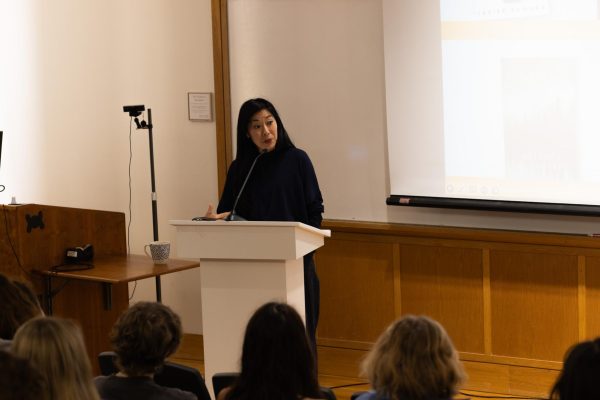Colgate Hosts Screening of ‘Utica: The Last Refuge’
Faculty, community members and students gathered in Little Hall’s Golden Auditorium for a screening of “Utica: The Last Refuge,” directed by Loch Phillips on Friday, April 7 . The documentary follows refugees from Bosnia, Sudan, Syria and Burma as they grow accustomed into Utica, N.Y. and transform the cultural fabric of the populace. Utica, approximately 45 minutes northeast of Colgate with a population of 58,880 as of the 2018 census estimate, was famously coined “the town that loves refugees.” The documentary provides a nuanced depiction of the lived experiences of refugees who have re-settled in the city, showcasing the struggles and triumphs of individuals and families. The film also discusses the local organizations that support the community, primarily The Center, a refugee and immigrant resource and resettlement center. The film reveals how recent policy changes have impacted the immigration system on both a local and national scale. One of the film’s aims was to deconstruct a false narrative in the U.S., which is that immigration drains American resources.
“One of the most powerful moments of the film for me was when Shelly Callahan, executive director of The Center in Utica, expresses just how untenable seemingly economic and legal arguments against refugee resettlement are,” said Aleksandr Sklyar Visiting Assistant Professor in University Studies. “Some of the vilest myths about refugees and immigrants include that they/we somehow ‘take American jobs,’ that they/we leech off federal aid and that they/we somehow ‘have everything handed to them/us. Not only are these myths untenable in the face of long-term research in economics and demography – they are also logically untenable when you come to know of the legal, medical, and bureaucratic processing that all refugees have to go through prior to their arrival in the United States.“
In fact, the film chronicles a story of urban renewal; in Utica, the incoming refugee population saved the dying industrial hub. In this way, the city is an interesting case as most citizens are uncharacteristically thankful and welcoming to refugees, as they continue to revitalize the local economy.
The film was followed with a discussion featuring a distinguished panel: The film’s director, Loch Phillips; the producer, David Chanatry; the immigration coordinator for The Center in Utica, Tatjana Kulalic; and Ellen Kraly, interim provost and dean of the faculty, who is also a professor of geography and environmental studies.
Kulalic, who is a Bosnian refugee, explained her decision to be involved in the film.
“I started thinking, if they want to tell this story, I want to be a part of that. If anyone needs to tell this story it’s us. I want to tell my story because I feel my pain the best, and I can speak on happiness, refugees and the refugee experience.”
The director of the film, Phillips, upheld the importance of providing members of the community and employees at The Center with the autonomy to narrate the film.
“I was clear from the outset that we were not going to be narrating this film, there would be no voice of god, the refugees would tell it how they wanted to tell it. All I knew is I was going to explain how we have data showing that this work is a success in Utica,” Loch said.
The post-screening conversation was lively, with many audience members sharing stories and asking questions. One audience member even recognized a staff member at The Center as a young student he recently taught who had immigrated from Russia many years ago. The film provided a powerful and raw depiction of the hard work involved in refugee resettlement undertaken by both the refugees themselves and the resettlement staff. More importantly, the film showcases the incredible rewards a community is offered when they open their doors and their hearts to immigrants.


